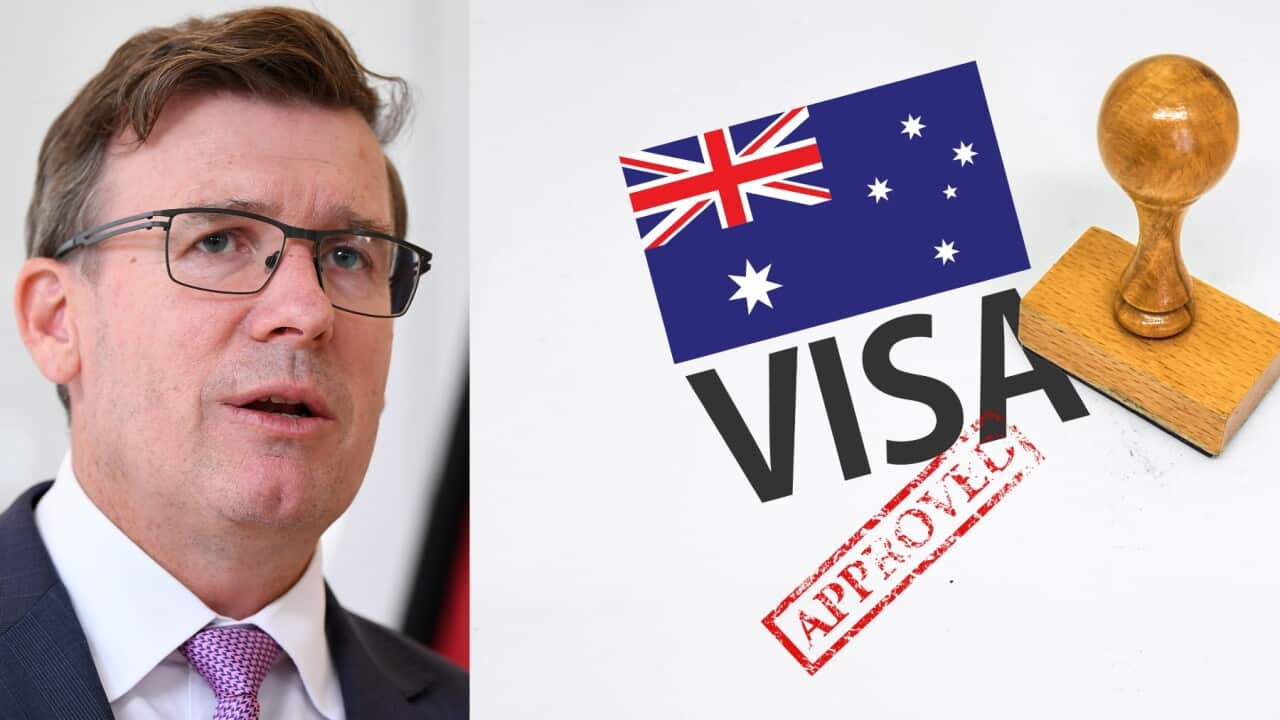Highlights
- Pensioners from India on visitor visa in Australia are unable to return due to travel ban, can't withdraw pension overseas
- Life certificate can be attested at Indian high commission or consulate and posted or emailed to former employer
- Some employers accept attested statutory declaration attested by JP or police officer too by email
Sucharita Kumari, a retired government employee from India, is currently visiting her family in Australia.
She and her husband were due to fly back in May but the lockdown in both countries has not only impacted their travel plans but also their pocket.
‘Money decreasing, worry increasing’
Ms Kumari and her husband arrived at their son’s place in Gold Coast in February on a three-month visitor visa.
Along with their essential needs, they brought with them enough money to last them for three months.
But as the couple’s return journey draws near, which is still uncertain, the money they brought from India is fast depleting while their concerns about being able to withdraw their pension are growing.
“People like us are worried about how they’ll survive the travel ban. Most Indian banks, except a few private ones, don’t transfer money to overseas banks. If we are unable to return to India next month, we will run short or even out of money,” says Ms Kumari who belongs to Sangrur in the northern Indian state of Punjab.
‘I certify I’m alive’
Gurmeet Singh Arneja, a retired banker from Mohali, shares Ms Kumari’s concern. He is currently visiting his son in Melbourne.
Until recently, he was also puzzled about how to submit his life certificate to his former employer.
A vital document for retirees in India, this certificate entitles them to their monthly pension.
Once a year, every pensioner must submit this document to the former employer to prove that she/he is alive, so that the pension may be continued.
For those pensioners who are overseas, the life certificate can be attested at the nearest Indian diplomatic mission in person or by post. This is a gratis service, i.e., it is provided free of charge by the Government of India.
In Australia, this life certificate form can be downloaded from the website of the High Commission of India or consulate and attested there, after being initially attested by a Justice of the Peace (JP).
This document then has to be sent to the former employer by post. Some also accept its scanned copy by email.
Email to the rescue
Jaspal Singh of Chandigarh is visiting his son in Sydney these days.
He says that although living with family for him means he “doesn’t need to worry about money” but having lived a financially independent life makes him “uncomfortable without enough of his own” money.
“I came here for 12 months. Our visitor visa will expire in June. We had brought around $2500 from India and it’s nearly exhausted. Worried that my pension may cease to be disbursed, I called up my former employer in India and explained the situation and suggested they accept my life certificate by email,” says Mr Singh.
His suggestion was accepted and he was spared the effort of getting his life certificate attested at the Indian Consulate in Sydney.
What if a JP’s attestation doesn’t work?
But in Mr Arneja’s case, a JP’s attestation was not acceptable to his former employer.
“I was supposed to fly back on March 6 but now, I had to get my ticket extended to September. Submitting my life certificate before that was vital,” says Mr Arneja with concern.
Being stuck in Australia due to the coronavirus travel ban, he had to look for an alternative.
“I was very concerned about my life certificate because if I missed it, my pension would come to a halt. I asked my former employer for a solution and I was told to email a statutory declaration attested by a police officer and not a JP. Both our sons are cops and that saved me the effort of going to the Indian consulate,” he adds.
However, some employers do not accept life certificates by email. Some still necessitate its submission via an Indian diplomatic mission overseas.
Coronavirus symptoms can range from mild illness to pneumonia, according to the Federal Government's website. Symptoms can include a fever, coughing, sore throat, fatigue and shortness of breath.
If you develop symptoms within 14 days of returning from overseas, you should call to seek medical attention.
If you don’t have symptoms but you have been in contact with a confirmed COVID-19 case, you should also call to seek medical attention.
If you believe you may need to get tested, call your doctor, don’t visit. Or contact the national Coronavirus Health Information Hotline on 1800 020 080.
If you are struggling to breathe or experiencing a medical emergency, call 000.



